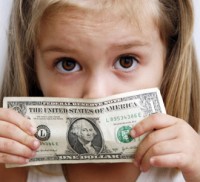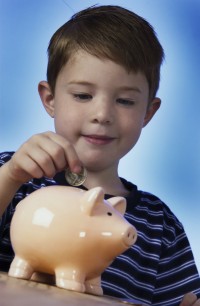The average American’s amount of debt is $10,000.  That’s a staggering number! But, did you know that our ideas about money are formed almost completely formed by the time we are six years old, and it is around this time when most of our notions about money are come about.
As children, we set our money habits for the rest of our lives. And do you really, want to teach your children these same bad money habits?
ChicagoHealers.com practitioner, Dr. Julie Murphy Casserly, CFP, provides some tips to help reflect on your own financial upbringing and find ways to outgrow your more immature money habits:
- Dig in your piggy bank. Maybe as a child you saved all your lemonade stand money diligently in an increasingly hefty piggy bank, or maybe you blew it all on candy at the grocery store. Either way, childhood experiences dealing with money can subconsciously impact your spending habits as an adult. For example if kids called you “poor†at school because your parents couldn’t afford brand-name clothes, you may justify splurging on designer clothes now because you still have that deep-rooted insecurity about being singled out when you were younger. Write down any experiences that come to your mind about money as a child so you can start overcoming these scarring situations.
- Set personal boundaries. As a child peer pressure plays a big role in how we react to situations – even if you wouldn’t normally drink before prom, your friends teasing you could be incentive to go along with it. These familiar situations are replicated in our adult life, and the only thing we can do is be aware of this and change ourselves. Next time a friend asks you out to a dinner you can’t afford, recognize your behavior patterns and hesitate before you say yes. Can you really afford this? Is it worth it? Chances are your friend will respect your honesty if you politely decline or request a less pricey alternative for a social gathering.
- A penny for your thoughts. This week, while your kids are doing homework, spend some time reflecting on your own childhood experiences with money. Did your parents encourage you to use your money a certain way? Did you have a job babysitting or mowing lawns as a kid? Journal about the things that come to mind.
- Take a personal inventory. What were some of the things you wrote down? Did you quickly spend your allowance or did you tightly hold on to it? What do you feel when you remember those childhood experiences? And how does that feeling shift when you think about how those experiences affect you today?
- Set an example. Now that you know these things about your own childhood, make sure your child has a healthy view on finances from a young age. Discuss the importance of generosity and being grateful for what you have and the fact that happiness does not come from material satisfaction.
It can be hard to let go of money habits, but won’t it feel great to be teaching our kids GOOD money habits rather then poor ones?



